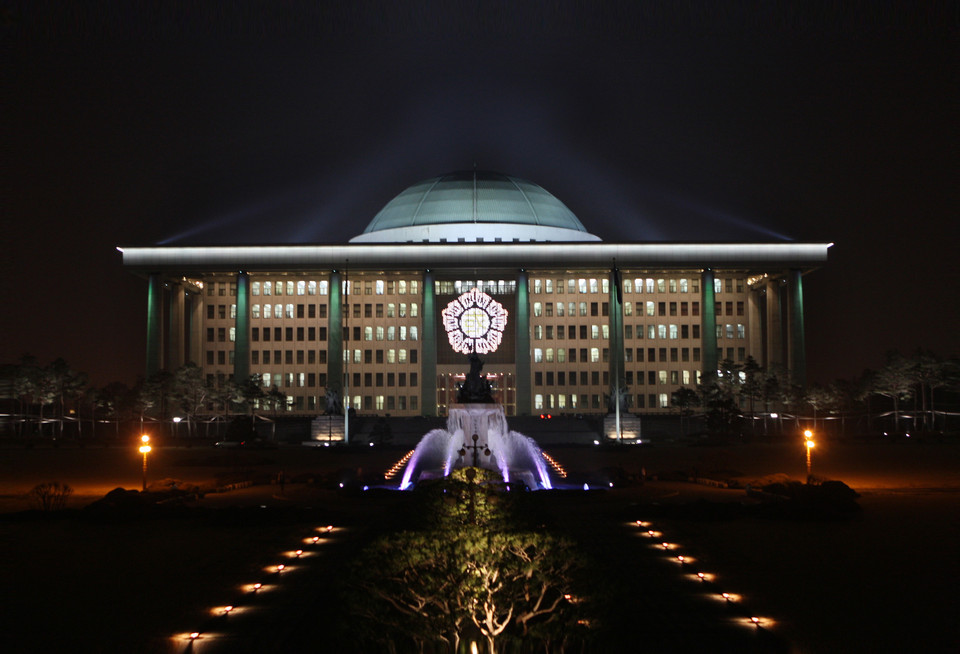
By Sunny Um Wired Korea
With the outbreak of a novel coronavirus, or COVID-19, pushing the Korean economy into a downward spiral, politicians are debating the idea of giving families subsidies to help them tide over a pandemic-induced crisis and boost sagging consumption.
Few politicians are opposed to pandemic relief subsidies. On the contrary, the subsidy proposal has received broad support from both right-wing and left-wing politicians. But they have different ideas when it comes to specifics, including how much to give to whom.
Pandemic Relief Subsidy
A pandemic relief subsidy, generally called a “basic disaster income” in Korea, is an amount of money given in the form of cash, digital currency, or a local voucher with a time limit. Economists say they find its origin in a universal basic income.
In economics, a universal basic income refers to a government guarantee that each citizen, not a household, receives a minimum income. The purpose of the payment is to provide enough to cover the basic cost of living and provide financial security. No conditions would be attached to how the recipient spends the money.
The idea of a universal basic income has recently started to draw scholarly attention over concerns that automated labor or artificial intelligence are increasingly replacing human jobs. Several tech titans in Silicon Valley are also advocating the idea.
Facebook CEO Mark Zuckerburg said in his Harvard commencement speech in May 2017, "We should explore ideas like universal basic income to make sure everyone has a cushion to try new ideas." Tesla and SpaceX CEO Elon Musk also tweeted about the necessity of a universal basic income, saying emerging technologies like artificial intelligence become responsible for human job losses.

How Did It Start in Korea?
In Korea, the notion of a pandemic relief subsidy was hatched when the COVID-19 outbreak started to pinch low-income households and strangle business concerns as consumers were tightening their purse strings.
One of the early proponents is Lee Jae-woong, CEO of SoCar, a car-sharing service, who, in February, filed a public petition with the government on its website to give each person $400 to help him cope with the COVID-19 outbreak.
“The fear of COVID-19 has caused an economic crisis, and people are in danger of losing jobs and income, and even their lives are being threatened,” Lee wrote on the petition he posted. “Small business owners, freelance workers, temporary workers, students and unemployed people need some amount of money to buy face masks, pay rents, take care of children, and at least eat instant noodles at home.”
The proposal began to take shape when it was embraced by Lee Jae-myung, governor of Gyeonggi Province. He announced a plan to give each of the 13 million provincial residents 100,000 won (about $80) in a one-time payment. The money, he said, would be sent to credit card accounts or paid in the form of local currency.
Then the central government decided to give each household in the bottom 70 percent income bracket a pandemic relief subsidy, with the amount each member of the household would receive being set at 250,000 won. The subsidy plan is contained in a supplementary budget bill the government is set to submit to the National Assembly for approval in the near future.
More to Everyone: Populist Move?
The ruling liberal Democratic Party of Korea supports the government subsidy plan. But it hopes coverage will be extended to all households.
“It is important to show the state tries to protect all citizens regardless of their place of residence or income level,” said Lee Hae-chan, leader of the Democratic Party on April 6. “As soon as the upcoming general elections are over, our party will deal with this issue and come up with a plan to assure every citizen (that he would receive a subsidy).”
The United Future Party, the main opposition conservative party, which is not opposed to the government plan, has nonetheless made a counterproposal to give each citizen 500,000 won, or twice as much as proposed by the Democratic Party, in the form of a universal subsidy. It even urges President Moon Jae-in to skirt around the National Assembly procedure and invoke his constitutional emergency powers to pay the subsidy within a week.
A lone voice of opposition is coming from Rep. Yoo Seung-min of United Future Party, who blames the party for deviating from its conservative plank and making a populist move ahead of the April 15 general elections. He writes on Facebook that offering the subsidy universally is not based on traditional ideas of right-wing politics and that he is opposed to the party’s “malicious populist attempt” to buy votes.
Rep. Na Kyung-won, another member of the conservative party, argued on April 8 that the government’s subsidy should be given not to all citizens but to small- and medium-sized businesses to help them recover from an economic shock from the outbreak.
Stimulating Consumption
Underpinning an argument in favor of a relief subsidy is the theory that more cash in the pockets of consumers would raise the level of consumption, which in turn help businesses overcome the outbreak of the virus. But the theory is moot.
Chon Song-in, a professor of economics at Hongik University and a proponent of a pandemic relief subsidy, says subsidies will definitely lead to more consumption. He says, “Let’s say I give you over one million won. Would you use it? If you say yes, there definitely should be a substantial increase in consumption.”
But Kang Sung-jin, a professor of economics at Korea University, says subsidies would be of much help to low-income families but not to middle- and higher-income families. Moreover, he says, a subsidy to a low-income family would be spent on a debt payment rather than making purchases.
He says, “Most in the low-income bracket have debts. When they receive a subsidy, they would rather like to repay their debts than making purchases.”
Cash or Local Voucher
Chon of Hongik University does not rule out the possibility of subsidies being used to repay bets. But he believes that measures can be taken to ensure that they will be used to make purchases.
“If the subsidy recipient is bankrupt or indebted, lenders or creditors may attempt to take the payment,” Chon says. However, he says a subsidy paid in the form of local voucher would eliminate such a problem.
“If you want to see some surge in the national consumption level, it would be better to roll out a subsidy in a currency that a third party like debtor cannot claim, such as local vouchers.”
Sourcing a Fund for Subsidies
How to fund a subsidy program is another issue of contention. One idea popular among liberals is to raise tax rates for high-income earners for a limited period of time. This idea is favored by Chon from Hongik University.
He says, “I don’t think everyone should pay a higher rate of tax to ease the financial burden of the government. The wealthy can pay a little more."
South Gyeongsang Province Governor Kim Kyoung-soo is an advocate, too. He said at a recent press conference that the government could increase tax revenues from well-to-do people next year.
But Shin Se-don, a campaign strategist of the United Future Party, says it is unfair to impose taxes on the higher-income citizens because they have already been paying higher tax rates than the lower-income people. He says the government will do well to re-adjust this year’s budget in favor of the relief subsidy program.
“The current budget assumed this year would be little different from last year, but the situation has drastically changed now. By re-adjusting priorities in spending, the government would be able to fund the subsidy program without increasing a penny in tax revenues,” he says.
와이어드 코리아=Sunny Um Staff Reporter
sunny@wired.kr
저작권자 © WIRED Korea 무단전재 및 재배포 금지
와이어드 코리아=Sunny Um Staff Reporter
sunny@wired.kr
저작권자 © WIRED Korea 무단전재 및 재배포 금지
이 기사를 공유합니다


 뉴스레터 신청
뉴스레터 신청